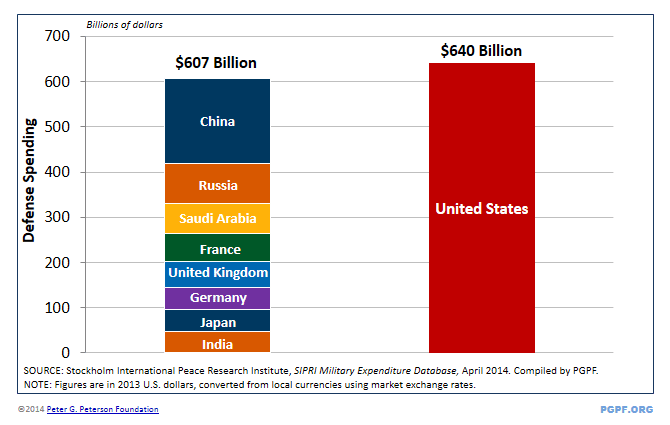A Tale of Two Cities: Fallujah and Allepo
Iraqi army forces intensified their shelling of Fallujah over the past couple of days in attempt to dislodge control from an al-Qaeda affiliate that last month overran the city and most of the Anbar region in which it lies.
US Secretary of State John Kerry pledged support to Iraq in its efforts to expel al-Qaeda from Fallujah and Anbar, promising the US would do “everything that is possible” to help the Maliki government take on al-Qaeda in Iraq. The US has already sent at least 75 “Hellfire” missiles and promised to send in drones as well.
Meanwhile…
Syrian government forces intensified shelling of Aleppo over the last couple of days in attempt to dislodge control of parts of the area from various al-Qaeda affiliates who overran that city.
US Secretary of State John Kerry condemned Syrian government actions against al-Qaeda affiliates, stating, “There is no way, not possible in the imagination, that the man who has led the brutal response to his own people could regain legitimacy to govern.”
The US government has pledged support to the Syrian rebels in their efforts to expel the Syrian government from power, with US Congress voting recently — in secret — to step up military assistance to the Syrian rebels. Though the assistance is advertised as going to only the “moderate” factions, numerous reports confirm that US military equipment routinely winds up in the hands of the al-Qaeda affiliates in Syria.
Thus John Kerry and the Obama regime enters into the world of the clinically insane: sending weapons to attack the same al-Qaeda in Iraq that it arms in neighboring Syria. It is the foreign policy equivalent of Caligula naming his horse Incitatus a consul.
I am on RPI, Facebook, and Twitter.
The proper foreign policy is, of course, non-intervention. If the US Government could bring themselves to taking a "hands-off" approach and allow free-trade, levy no protectionist tariffs, and cease its incessant meddling in the affairs of other nations, many less enemies would materialize. At the very least, those enemies would have much less fertile ground in which they seed their rejection of the US. Indeed, there was a time when people in other nations looked to the US as an example to emulate.
Unfortunately, the US has shifted its foreign relations from peaceful and mutually beneficial commercial interactions via free trade to militarism and destruction via foreign policy. This creates a strange sort of system in that those who are supposed to represent the national interest have an incentive to provoke enemies into existence, if only to justify their own existence. Even worse, powerful interests exist which lobby the government to procure more and more funding to the military to line their own pockets. The projects the military undertakes are often spread out to many different constituencies, in a political twisting of the division of labor. This labor division is not oriented in achieving more efficient or economical production. Rather, it is designed to procure support from formerly disinterested parties to the war machine because it provides for their livelihood.
The foreign policy of interventionism has created a very messy situation which lacks any clear objective, is imperialistic, is pursued hypocritically and spreads animosity which breeds resentment. This policy is the wellspring of propaganda which says that the enemy is all around you, hiding under every rock. Indeed, it is the job of these folks to warn you about the monster in your closet- a monster which only the mighty power of the military can contest. Intervention is antithetical to peace, and is a threat to the people living in the imperialist's domain, but it is a boon to those who seek to profit from human misery.1 If peace is desired, non-intervention must be the cornerstone of foreign policy.
Note:
1. Take a look at this chart, which compares the US military budget (2012) to that of other nations:

No comments:
Post a Comment